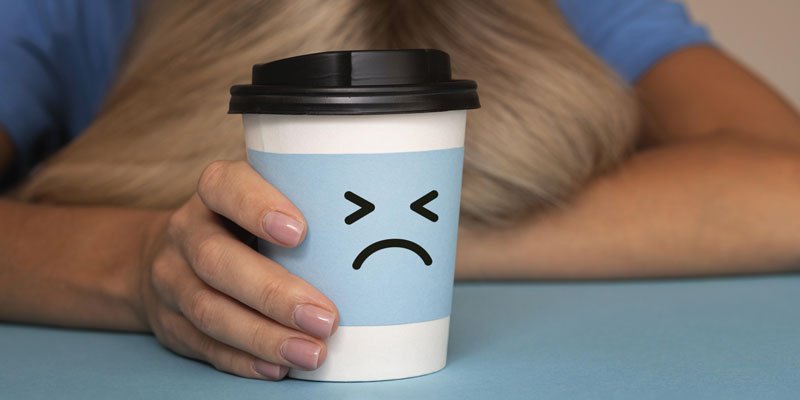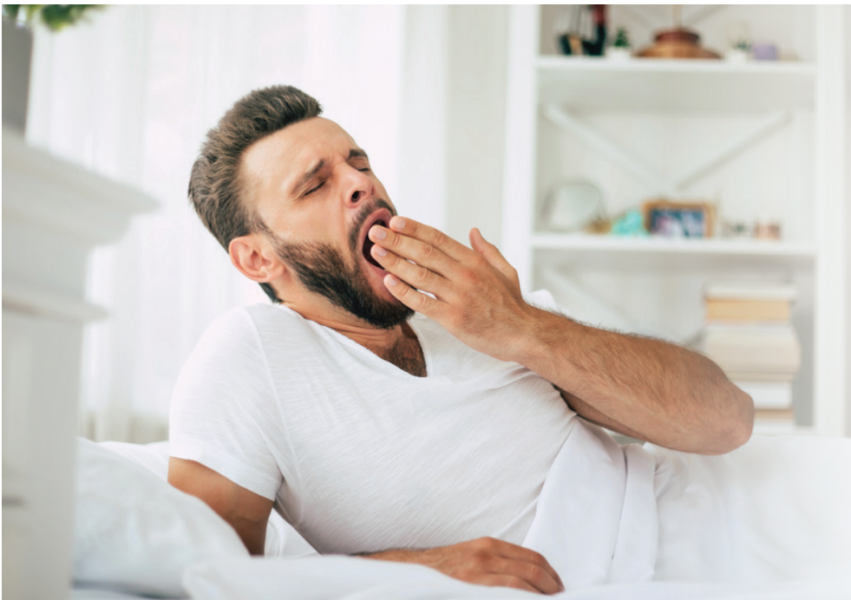Dr. Lee Surkin, Chief Medical Officer of Nexus Dental Systems, looks into the possible causes of morning grogginess, sleep drunkenness, and other symptoms of sleep inertia that can have a negative effect on overall health.
 by Lee A. Surkin, MD, FACC, FCCP, FASNC, FAASM
by Lee A. Surkin, MD, FACC, FCCP, FASNC, FAASM
Have you ever woken up in the morning with an intense urge to go back to sleep even after getting the recommended amount of sleep per night? Do you experience morning grogginess when this happens to you? This phenomenon is what’s known as sleep inertia and although it itself isn’t a bad thing, it can harm cognitive functions and potentially cause other problems if it becomes severe.
Continue reading below to find out what causes sleep inertia, sleep inertia symptoms, and how it is diagnosed.
“Sleep inertia is most common in people who work long hours or shift work and can negatively affect their safety and well-being.”
Sleep Inertia Basics
In short, the feeling of morning grogginess, drowsiness, cognitive impairment, and sleep drunkenness is called sleep inertia. It typically lasts for 15 minutes to an hour, but in more severe cases it can last for up to a couple of hours upon waking up.
The biological reason why some people experience sleep inertia symptoms hasn’t been determined yet, but experts guess that it helps in maintaining sleep when unwanted wakings occur. So, sleep inertia is thought of as a protective mechanism.
Sleep inertia is most common in people who work long hours or shift work and can negatively affect their safety and well-being. Due to morning grogginess and sleep drunkenness, these people have a slower reaction time and reduced cognitive alertness.
Sleep Inertia Symptoms
Generally, the most noticeable sleep inertia symptoms present right after waking up and slowly disappear over time. Now, let’s have a look at the most common symptoms of sleep inertia:
- Morning grogginess
- Sleep drunkenness
- An urge to go back to sleep
- Poor cognitive ability
- Impaired visual attention
- Reduced spatial memory
What Causes Sleep Inertia?
We already mentioned above that researchers haven’t determined the exact biological cause of sleep inertia. However, according to research, three common theories may explain what causes sleep inertia.
First, it is believed that sleep inertia is caused by increased delta waves in the posterior part of the brain. These waves are also called slow waves and are part of the NREM (non-rapid eye movement) sleep stage and usually increase after periods of lack of sleep or sleep deprivation. So, when the brain hasn’t reduced these waves to prepare for waking up or is awoken during the NREM sleep stage, sleep inertia may occur.
The second potential theory explaining what causes sleep inertia is the adenosine theory. Namely, adenosine is a nucleic acid compound in the brain that is key for sleep and wakefulness. The levels of this compound should be low after waking so if they remain high it may lead to experiencing sleep inertia symptoms.
Third, based on the stage of sleep, sleep cycles determine the pattern in which blood flows to the brain. One syndrome called CFS (chronic fatigue syndrome) is very similar to sleep inertia and is linked to decreased cerebral blood flow. It is possible that the blood flow reduction after waking leads to sleep inertia symptoms.
Sleep Inertia Diagnosis
If you experience morning grogginess, sleep drunkenness, or other sleep inertia symptoms, ensure you consult your doctor and consider doing a polysomnography sleep study. This will help your doctor see whether or not there’s an underlying sleep disorder affecting your sleep and causing sleep inertia.
Another way to help your doctor diagnose you with sleep inertia is keeping a sleep journal to get an insight into your sleeping patterns. That said, you should take records of the times and the amount you sleep as well as how you feel upon waking and whether or not you experience any symptoms.
Morning grogginess may be a sign of OSA. For more information on OSA and how it is treated with oral appliance therapy, read “Improving Management of Obstructive Sleep Apnea with Oral Appliance Therapy – A Sleep Physician’s Perspective,” by Dr. Jonathan S. Lown at https://dentalsleeppractice.com/improving-management-obstructive-sleep-apnea-oral-appliance-therapy-sleep-physicians-perspective-jonathan-s-lown-md-d-abim/

 Lee A. Surkin, MD, is the Chief Medical Officer of Nexus Dental Systems. A private practitioner in cardiology, sleep medicine, and obesity medicine, he is one of a small group of physicians to be triple board certified in cardiology, sleep medicine, and nuclear cardiology. In 2009, he created Carolina Sleep – the only dedicated sleep medicine practice in eastern NC. Dr. Surkin has created a cardiovascular and sleep healthcare model that includes a multi-faceted diagnostic and treatment approach that is enhanced by a network of relationships with physicians, dentists, respiratory therapists, sleep technologists, and public officials who recognize the important role that sleep medicine has in our daily life. In 2012, Dr. Surkin founded the American Academy of Cardiovascular Sleep Medicine which is a not-for-profit academic organization dedicated to educating healthcare providers, supporting research, and increasing public awareness of the convergence between cardiovascular disease and sleep disorders. In 2014, Dr. Surkin created a new multi-specialty practice called Carolina Clinic for Health and Wellness which combines his specialties with primary care, gynecology, behavioral health and a medical spa. Dr. Surkin is married with three daughters and a golden retriever and resides in Greenville, NC.
Lee A. Surkin, MD, is the Chief Medical Officer of Nexus Dental Systems. A private practitioner in cardiology, sleep medicine, and obesity medicine, he is one of a small group of physicians to be triple board certified in cardiology, sleep medicine, and nuclear cardiology. In 2009, he created Carolina Sleep – the only dedicated sleep medicine practice in eastern NC. Dr. Surkin has created a cardiovascular and sleep healthcare model that includes a multi-faceted diagnostic and treatment approach that is enhanced by a network of relationships with physicians, dentists, respiratory therapists, sleep technologists, and public officials who recognize the important role that sleep medicine has in our daily life. In 2012, Dr. Surkin founded the American Academy of Cardiovascular Sleep Medicine which is a not-for-profit academic organization dedicated to educating healthcare providers, supporting research, and increasing public awareness of the convergence between cardiovascular disease and sleep disorders. In 2014, Dr. Surkin created a new multi-specialty practice called Carolina Clinic for Health and Wellness which combines his specialties with primary care, gynecology, behavioral health and a medical spa. Dr. Surkin is married with three daughters and a golden retriever and resides in Greenville, NC.